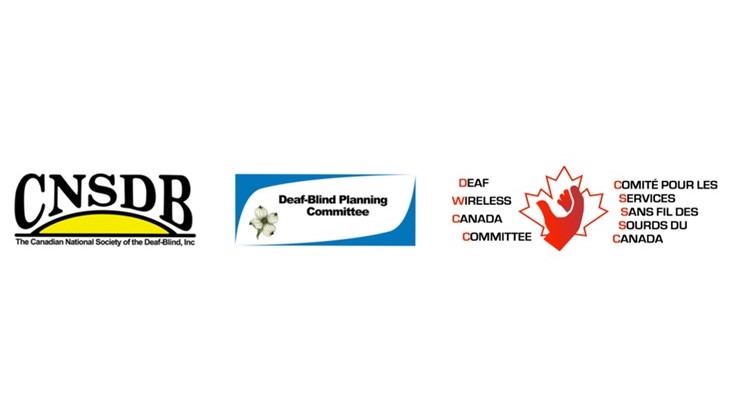
Groups representing deaf and blind Canadians that took part in the CRTC’s two-and-a-half-year review of video relay service (VRS) are accusing the country’s large telecom players of turning the cost claim process for the proceeding into a barrier to Canadians with disabilities.
On Jan. 14, the Canadian National Society of the Deaf-Blind (CNSDB), Deaf-Blind Planning Committee (DBPC) and Deaf Wireless Canada Consultative Committee (DWCC) submitted applications for reimbursement of costs associated with their participation in the CRTC’s 2021-102 proceeding, which was launched in March 2021 and closed in October 2023. The CNSDB and DBPC conducted some of their participation in the proceeding as the Canadian Deaf-Blind Collective (CDBC.VRS).
The CRTC’s proceeding looked at whether VRS was efficiently addressing the needs of Canadians with hearing and speech disabilities, whether the VRS regulatory framework or service needed modifications or improvements, and whether the Canadian Administrator of VRS (CAV)’s governance structure and funding model and cap remain appropriate. The CRTC’s decision on the proceeding is still forthcoming.
In their cost recovery applications, the CNSDB, DBPC and DWCC submitted cost claims of $99,015, $119,942 and $92,470, respectively.
On Jan. 25, CNSDB and DBPC received a joint letter from Bell, Quebecor, Rogers and Telus in response to their cost reimbursement application, and the letter was subsequently forwarded to DWCC. Among other things, the telecoms’ letter questioned whether the three accessibility advocacy groups had participated responsibly in the proceeding, suggested they should have collaborated in an efficient and cost-effective manner, and also suggested certain tasks undertaken to participate in the proceeding could not have assisted the CRTC with a better understanding of the issues.
On Feb. 26, the CRTC sent request for information (RFI) letters to all three groups, asking for additional information regarding their applications for costs. The CRTC noted there was possible duplication of work hours claimed for consultants and an analyst across the three organizations.
Responding to the telecoms’ letter, the CNSDB, DBPC and DWCC submitted a joint letter to the CRTC on March 15, in which they claimed the big telecom companies were taking “an able-bodied view of the cost process” and ignoring the unique circumstances of deaf-blind individuals who participated in the proceeding.
“The Commission must not allow the Telco Respondents from turning the cost claims process into a barrier prohibited by the Accessible Canada Act [‘ACA’], yet that is what is happening with this and previous cost claim challenges,” the groups’ joint letter reads. “The Telco Respondents have, using well-funded legal and regulatory departments, forced the already-struggling and vulnerable Joint Applicants into justifying not only how they added value to the Commission’s underlying proceeding, but patronizingly apply an able-bodied lens to how Canadians with disabilities ought to have behaved in the proceeding (emphasis in original).
“This has the effect of putting immense financial pressure on the Joint Applicants; is demeaning; and tantamount to bullying. Crucially, by forcing the Joint Applicants into an explanation of the value they brought to the underlying proceeding which ought to be self-evident on the merits of their interventions, and by second-guessing what it actually takes for Canadians with disabilities to participate in proceedings which affect them, puts the Commission at risk of non-compliance with the ACA,” the letter adds.
The letter notes this was the first time deaf-blind individuals have been included in a proceeding related to the VRS, and they faced challenges accessing and reading a number of documents. Formats such as PDFs and spreadsheets create accessibility barriers to deaf-blind people, and some of the groups’ cost claims were related to work required to make materials related to the proceeding more accessible, the letter explains.
In a response to the commission’s Feb. 26 letter, the DWCC acknowledged its cost application included some consultant meeting hours that were accidentally duplicated on the CNSDB and/or DBPC cost applications. In the case of the senior consultant for the three groups, a total of 20 hours (representing $4,500 in costs) should be removed from the collective applications due to duplicative timesheet entries, according to a March 13 letter submitted by the DWCC to the commission.
In their March 15 response to the telecoms’ letter, the three groups said an additional 15 hours attributed to the senior consultant (representing $3,375 in costs) should also be removed from the collective timesheets due to miscalculation.
In addition, the DWCC’s letter to the commission said a total of 10 hours of meeting times attributed to a junior consultant and an analyst should be removed from DWCC’s cost application.
The cost respondents now have until March 22 to file replies in response to the information provided by the cost applicants in their RFI response.
Final replies from the cost applicants are due by April 1.



